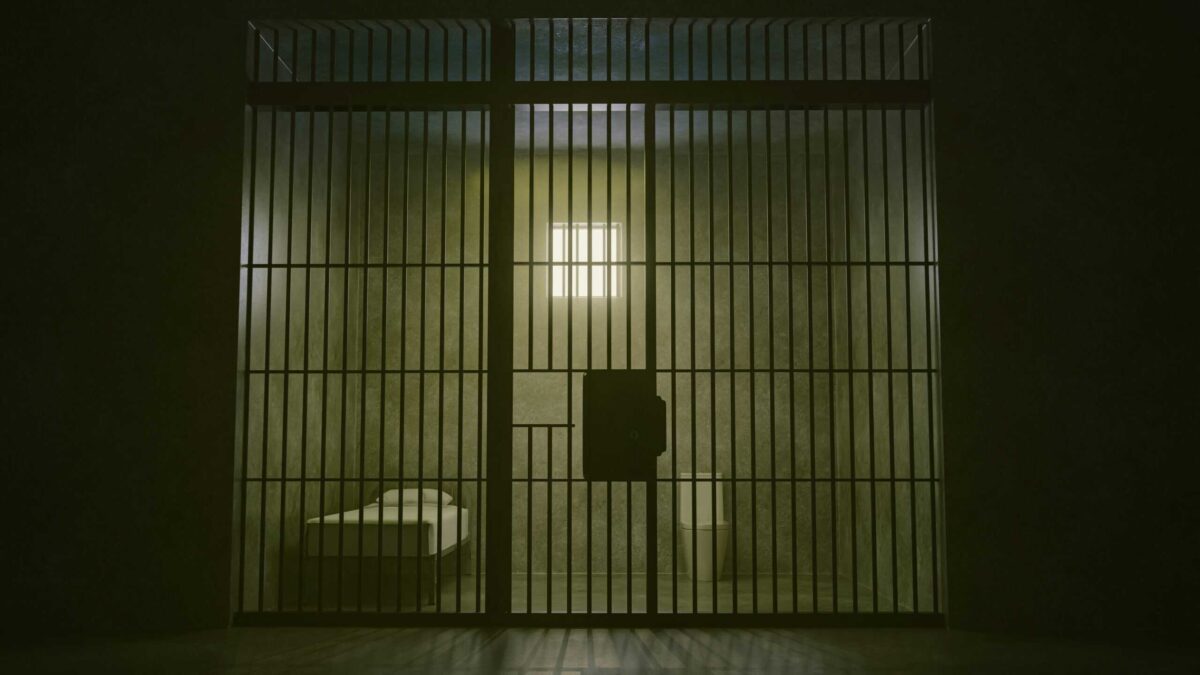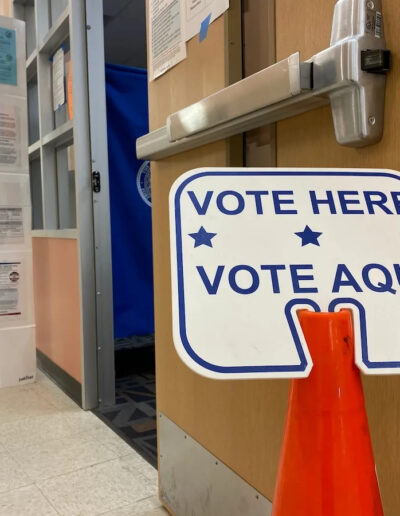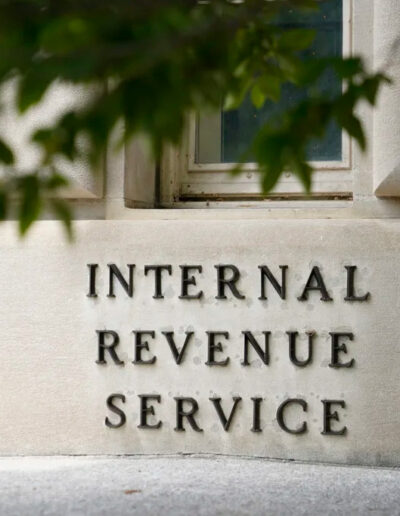
A Texas appeals court sided with Attorney General Ken Paxton, ruling that weed decriminalization measures in Austin and San Marcos run afoul of state law. (Photo by Matt Hennie)
Attorney General Ken Paxton won injunctions against weed decriminalization ballot measures overwhelmingly approved by voters in Austin and San Marcos.
A Texas appeals court in late April struck down voter-approved measures in Austin and San Marcos that decriminalized small amounts of marijuana.
The state’s 15th Court of Appeals sided with Attorney General Ken Paxton, who has fought a series of ballot measures overwhelmingly approved by local voters in cities across the state. The court ruled that both ordinances were preempted by state law and ordered lower courts to issue the injunctions Paxton sought to block them.
The court issued its ruling against the Austin ordinance on Thursday and the San Marcos one on April 17.
Ground Game Texas, which led efforts for the ballot initiatives in both cities, criticized the decisions from a “crony court.”
“These decisions don’t change the fact that the people of Austin and San Marcos spoke with one voice,” Catina Voellinger, Ground Game’s executive director, said in a prepared statement. “It doesn’t change the fact that for years, the ordinance protected residents from arrest and criminalization over low-level possession. And it definitely doesn’t change our commitment to this fight.
Abbott pushed lawmakers to create the new court in 2023 to handle appeals involving the state and businesses. Critics called the move an end run around courts in large counties where Democrats dominate judicial seats. Abbott then stacked the court with three conservative appointees who won’t face voters until 2026.
Ground Game, which recently announced plans for a weed decriminalization ballot measure in Kyle, said it will change its successful playbook in the wake of the appeals court decisions.
“It changes how we fight — not why we fight. We will continue to work with our partners in San Marcos and Austin to craft policies that respond to this ruling while working to preserve the will of the voters who overwhelmingly turned out for these ordinances,” Voellinger said.
The Ground Game ballot measures prohibit police from charging people with misdemeanor possession of marijuana if they have 4 ounces or less, unless the offense is part of a felony narcotics investigation, or using the odor of marijuana or hemp as probable cause for searches or seizures. The measures also ban the use of city funds for THC testing unless it’s part of a felony case.
Voters in Austin overwhelmingly favored the decriminalization measure in May 2022 when it passed with 85% support. Nearly 82% of voters supported the measure in San Marcos during a November 2022 vote. Paxton sued both cities in January 2024 and Dallas in November after voters there approved a similar ballot measure with 67% of the vote.
Legal weed, hemp face opposition in Texas Legislature
The court battles aren’t the only hurdles facing proponents of legalizing recreational weed in Texas.
In early December, Lt. Gov. Dan Patrick declared war on consumable THC and demanded that the legislature ban it — a blow to the state’s hemp industry, which rings up more than $8 billion in annual sales and employs over 50,000 people across Texas.
The proposed ban, Senate Bill 3 from Sen. Charles Perry (R-Lubbock), passed in a 26-5 vote on March 19. The bill was left pending in the House State Affairs Committee after an April 7 hearing.
Marijuana is illegal in Texas, but Texas lawmakers legalized hemp in 2019. Both come from the cannabis plant and both have THC, which is the main psychoactive component. The difference? Pot has a THC concentration of three-tenths of a percent or higher. Hemp is under three-tenths of a percent.
Lawmakers are also targeting the ballot measure process that Ground Game uses to put decriminalization before voters. House Bill 5082, from Rep. Jeff Leach (R-McKinney), prohibits municipalities from allowing voters to approve a measure that is inconsistent with state or federal drug laws. The bill also prohibits municipalities and law enforcement officials — including district attorneys, sheriffs, and police departments — from adopting ordinances and policies that are counter to state and federal drug laws.
The proposal allows Texans to file a complaint with the attorney general, who will decide if the ballot measure or policy contradicts state or federal law and can issue daily fines of up to $50,000 against the municipality or officials. The bill was left pending in the House State Affairs Committee after an April 25 hearing, but its companion bill — Senate Bill 1870, also from Perry — passed the Senate in a 23-8 vote on April 23.
“Whether or not one personally supports or opposes cannabis legalization, these cynical and undemocratic tactics ought to be a cause of deep concern,” Paul Armentano, deputy director of National Organization for the Reform of Marijuana Laws, said in a prepared statement.
Support Our Cause
Thank you for taking the time to read our work. Before you go, we hope you'll consider supporting our values-driven journalism, which has always strived to make clear what's really at stake for Texans and our future.
Since day one, our goal here at COURIER Texas has always been to empower people across the state with fact-based news and information. We believe that when people are armed with knowledge about what's happening in their local, state, and federal governments—including who is working on their behalf and who is actively trying to block efforts aimed at improving the daily lives of Texas families—they will be inspired to become civically engaged.






















